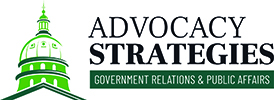This Week in the Iowa Legislature
As the legislative session progresses, tensions are beginning to rise. With ten weeks completed and six scheduled weeks remaining, lawmakers are feeling the pressure, leading to a noticeable shift in mood and temperament at the Capitol.
This past Tuesday, a large group of Iowa landowners and pipeline opponents once again gathered at the Statehouse urging lawmakers to prohibit the use of eminent domain for carbon dioxide pipelines. Despite their persistent weekly presence and ongoing advocacy efforts, they have yet to secure enough Senate support to advance legislation on the issue. In an effort to force action, Democratic Senator Tony Bisignano proposed an amendment to the Senate rules package that would have allowed any bill to be brought to the floor if a majority of Senators signed on in support. He argued that this change would enable consideration of pipeline legislation that Senate Republicans have blocked in previous years. Although his amendment was ultimately defeated, it did receive backing from a few Republican Senators, highlighting the ongoing debate within the chamber.
The remainder of the week saw lawmakers engaged in extended closed-door caucus discussions and intense floor debates. With the next funnel deadline approaching, negotiations are in full swing as legislators determine which key issues will advance. Meanwhile, the legislature remains at an impasse over school funding, having surpassed its self-imposed deadline with no resolution in sight. Both chambers continue to stand firm on their respective proposals, leaving the future of education funding uncertain.
Among the notable bills passed this week were measures addressing human trafficking, modifications to economic development awards affecting Iowa’s largest counties, legislation related to tuition costs and DEI policies at public universities, provisions for school satellite voting, and a last-minute amendment restricting local control over construction project bids. As the session moves forward, we will continue monitoring developments and keeping you informed on the latest legislative actions.
Transparency Concerns Over Construction Bid Amendment
A last-minute amendment to SF 603 has sparked intense debate, with lawmakers and advocacy groups criticizing the lack of transparency in the process. The amendment, primarily affecting larger communities like Des Moines and Cedar Rapids, restricts local governments from imposing post-bid qualifications on construction projects, including stricter apprenticeship and licensure requirements. Originally passed unanimously as a workforce development bill, the legislation was abruptly altered by Rep. Bobby Kaufmann’s amendment, which was swiftly approved by House Republicans along party lines, with only Republican David Blom joining Democrats in opposition.
On Wednesday, the Senate took up the bill for final approval, leaving no time for affected communities and industry stakeholders to provide input on the changes. Senator Charlie McClintock introduced an amendment to remove the controversial language, but it failed, with only Republican Senator Mike Pike joining McClintock and Senate Democrats in support. The bill now awaits the Governor’s decision, with local governments and trade unions urging a veto, arguing the amendment undermines local decision-making and was pushed through without sufficient public scrutiny.
Bills Sent to the Governor
- County Supervisor Elections (SF 75) would require counties with the main campus of a state university to use district representation when electing county supervisors. It also requires vacancies in these counties to be filled by special elections and vacancies in all other counties to be filled by appointment.
- Sports Wagering Income Tax Withholding (SF 605) specifies that all winnings from sports wagering are considered Iowa-earned income and subject to Iowa and federal income taxes, and if they are subject to federal income tax withholding, the bill requires state income tax be withheld from winnings.
Notable Bills Debated This Week
- Hands-Free (SF 22) prohibits the use of any electronic device while driving. The Senate passed the bill 47-1 and it is now on its way to the House to be debated. Its House companion is HF 827. Advocates hope it will move quickly in the House.
- Governor’s Cellphone Bill (HF 782) requires schools to adopt policies that would restrict the use of electronic devices during class time. The bill passed the House 88-9 and is now on its way to the Senate.
- Anti-Bullying Language (HF 865) strikes language from the definition of bullying and harassment that prohibits repeated and targeted conduct toward a student. This passed 64-33 in the House and is now on its way to the Senate.
- Governor’s Math Bill (HF 784) requires the DOE to distribute to schools’ family-centered math resources it also gives teacher evidence-based professional development services to support student development. The bill passed 82-16 and has a Senate companion.
- Speed Limit Change (SF 378) has raised the default speed limit to 60 mph. This bill passed in the Senate 36-12, and now moves to the House.
- Ranked-Choice Voting Ban (SF 459) would ban ranked-choice voting and instant runoff elections in the state of Iowa. The Senate passed this on a 34-13 party-line vote on Wednesday, with an amendment offered by the Democrats excluding local governments having failed. The bill now moves to the House where there is not a companion.
- Constitutional Amendment for Child Testimony (SJR 9): This proposed state constitutional amendment change, which passed the Senate 47-0, is a priority for the Attorney General. This would allow for some child crime victims to testify in a trial through a video system from a separate room. Now, it moves to the House where it has a companion.
- Public Employee PBM Reverse Auctions (SF 315) passed the Senate 46-0 and creates an automated PBM reverse auction process for PBMs to bid on having a contract for prescription drug purchasing for various public health sector plans. It is scheduled for a subcommittee in the House this coming week.
- Dental Assistant Licensing Changes (HF 805) would allow a person to practice as a dental assistant without being registered by the dental board if the person completes a term of “practical training” under the supervision of a dentist and requires the dental board to adopt rules for this. The bill passed with amendments by a vote of 70-19 in the House and now goes to the Senate where there is no companion. This bill is opposed by everyone in the dental community except the dentists and their association.
- Barber & Cosmetology Training Programs Bill (HF 711) would create a duplicate training program to be overseen by the Board of Barbering & Cosmetology Arts for unlicensed individuals, along with program requirements and hours. It passed with lots of concerns from industry professionals on a 67-29 vote in the House. It has been attached to SF 551 but faces an uphill battle in the Senate chamber as the original bill didn’t receive any support in the Senate State Government Committee and is looked at as a work around to current laws.
House Republican DEI Education Limitation Proposals
The House passed a series of bills imposing extensive restrictions on diversity, equity, and inclusion (DEI) initiatives across state agencies, local governments, and higher education institutions during several long hours of floor debate on Tuesday. HF 856 prohibits state funding for DEI offices or staff within these entities, extending the ban to community colleges and private universities participating in the Iowa Tuition Grant program. HF 269, dubbed the “Freedom from Indoctrination Act,” prevents public universities from mandating courses related to DEI or Critical Race Theory for graduation. Finally, HF 401 would establish uniform general education requirements, explicitly excluding content that teaches “identity politics” or systemic oppression. Proponents argued these measures promote merit-based systems and reduce societal division, while opponents said they would dismantle essential inclusivity efforts and could harm marginalized communities. It is unclear what appetite the Senate has in considering these proposals before the second funnel deadline.
Looking Ahead
We have just two weeks until the second funnel deadline on April 4th. In years past, we have seen a shift from floor debate to more subcommittee and committee work this next week, however the chamber calendars have very few committee meetings scheduled. The mood and approach appear to be different this year with a “less is more” philosophy. Outside of that, we will start to see the bill list narrow as each chamber needs to decide what issues are a priority. To stay up to date on scheduled committees and subcommittees and their virtual access information, follow this link.

